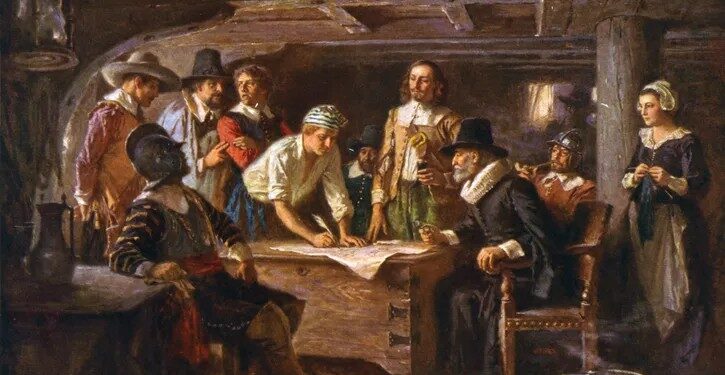On November 11, 1620, aboard the Mayflower anchored off the coast of what is now Massachusetts, a group of 41 English colonists drafted and signed a revolutionary document that would become one of the earliest examples of self-governance in the New World. The Mayflower Compact represented a critical moment in American history, establishing a framework for social order and collective decision-making in a wilderness far from the reach of British royal authority.
The circumstances leading to the compact were fraught with uncertainty. The Pilgrims, a group of religious separatists and other settlers, had originally intended to establish their colony in the northern part of the Virginia Company’s territory. However, treacherous seas and navigational challenges had blown them off course, landing them in present-day Plymouth, outside the legal jurisdiction of their original land patent.
This geographical displacement created a potential crisis of governance. Without a clear legal framework, the settlers faced the risk of complete social disintegration. Some of the non-Puritan passengers began to suggest that they might pursue their own interests independent of the group’s collective welfare, threatening the cohesion essential for survival in the harsh New England wilderness.
To address this challenge, the male passengers gathered in the cramped quarters of the Mayflower and created a document that would bind them together. The compact began with the famous words, “In the name of God, Amen,” and proceeded to establish a civil government based on the consent of the governed—a radical concept for its time.
The signatories agreed to create “just and equal laws” for the general good of the settlement, promising to submit to collective decision-making for the community’s benefit. This document represented a pivotal moment of democratic principles emerging in the American context, predating the United States Constitution by more than 150 years.
William Bradford, who would become the colony’s governor, was among the key figures who signed the document. The compact demonstrated remarkable foresight, creating a social contract that would help the Plymouth Colony survive its initial precarious years and serve as an inspirational model for future democratic governance.
Though brief—the entire document was fewer than 200 words—the Mayflower Compact became a foundational text in American political philosophy, embodying principles of self-governance, social cooperation, and collective responsibility that would profoundly shape the nation’s future democratic ideals.
newshub



Recent Comments